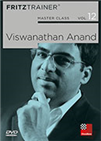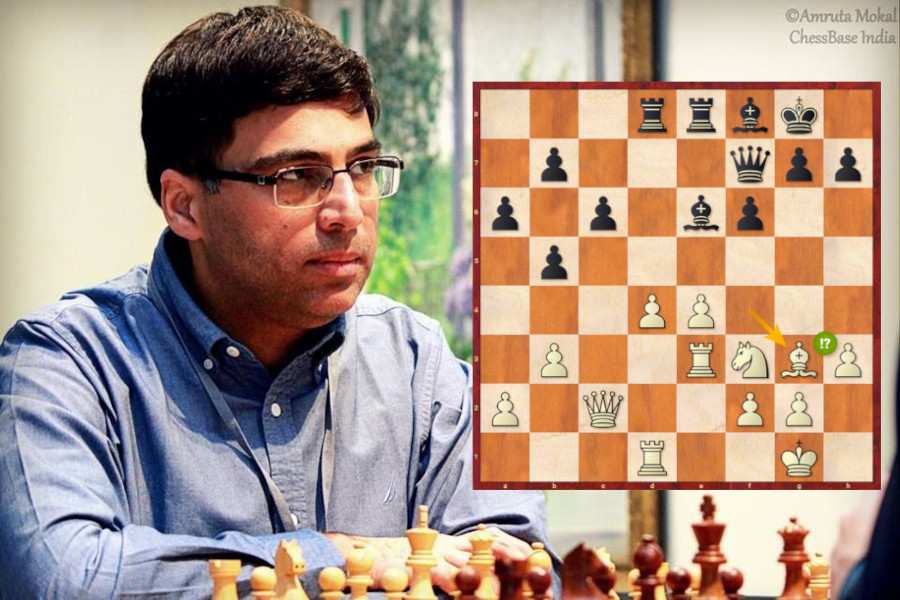When to punch, when to duck?
Chess is a matter of delicate judgement, knowing when to punch and how to duck.
Bobby Fischer
The eleventh World Champion’s quote is quite famous and profound. Chess, as often happens in life, is all about timing. This includes the art of waiting. Knowing when to wait and when to act is definitely the hallmark of any great chess player or artist. A recent favourite of mine is this poem by one of the most renowned Tamil poets of all time, Thiruvalluvar, on the importance of timing.
கொக்குஒக்க கூம்பும் பருவத்து மற்றுஅதன்
குத்துஒக்க சீர்த்த இடத்து
A rough translation would be: “One should be like the crane bird, which waits almost indefinitely for its prey and when the time to strike arises, swoops in on it”.
Thinking from the viewpoint of a chess player, this seems to be of primary importance. In fact, this is also what Bobby said about the royal game! I would like to share a few interesting game positions which stem from this theme.
Aronian v. Jakovenko - Chess Olympiad 2010
In the above position, after 32 moves, White continued with
33.Nf2!?
which is intended to simply improve and regroup his pieces in such a manner so as to make use of future opportunities. Also, the c6 weakness is directly attacked. So Black replied with
33...c5
and the game continued with
34.Nd3 Ra5 35.Ke2!
and already Black is not in an easy position to find moves! This signifies at least a practical advantage for White in this position. And here Black continued with
35....Kg7
 He was a child prodigy and he is surrounded by legends. In his best times he was considered to be unbeatable and by many he was reckoned to be the greatest chess talent of all time: Jose Raul Capablanca, born 1888 in Havana.
He was a child prodigy and he is surrounded by legends. In his best times he was considered to be unbeatable and by many he was reckoned to be the greatest chess talent of all time: Jose Raul Capablanca, born 1888 in Havana. And this moment seems especially instructive to me. White still waited with
36.Rc2!
White keeps all his pieces in readiness, while yet not taking any action. He can feel that his opponent is in an uncomfortable position because he cannot play the releasing move 36...cxd4 due to 37.Rc7!, winning a piece and continuing this further. He sort of expects Black to release one of his pieces from the seventh rank so as to prepare for cxd4 on the next move. So in a sense it was a cleverly veiled trap by Aronian, clearly waiting for an opportunity to strike.
Maybe Black should continue waiting too with 36...Kf8!?, but clearly that was not his idea of playing his king to g7 earlier. Instead, Black went for the most natural move.
36...Bf8?
in order to release his pieces from a possible skewer by the rook on the seventh rank.
And, at this moment, Aronian shows his keen eye for striking at the weakness which is not that easy to spot! The bishop while occupying the f8-square denies it to his monarch, and this in turn makes the square e8 a very pretty one for White’s light-squared bishop.
Essentially Black’s weakest point in this position is the pawn on f7 — which has been spotted by Aronian's eagle eye! The game continued with
37.Bc6! Nb8 38.Be8!
White won the game in a few more moves because of the weakness of the f7-pawn and his better coordination.
Anand v. Giri - Shamkir 2019
In this position after 19 moves, Anand came up with a simple waiting move
20.Bg3!?
But things are not that simple. White’s dark-squared bishop would love to occupy the fine post on b6 from where it can not only block the whole of Black’s queenside pawn formation but also defend his central pawn on d4. Reaching the target square seems far-fetched, but from White’s point of view, the advantage is that it’s quite an uncommon and veiled idea in this position. White waits until he is presented with an opportunity to improve even further. The game continued with
20...Qh5?
Black loses awareness of what’s the key of the position and embarks on pseudo activity. He could have of course played 20...Rd7! and the game goes on. One cannot be too harsh and criticize this decision as White’s next move is quite an easy one to miss, I believe.
21.Bc7! Rd7 22.Bb6!
A minute change in the position, but one that has a great impact. White’s bishop is brilliantly positioned to block Black’s majority and protect the d4-pawn. Also, the c5-square seems vulnerable. White improved his position even further with Ne1 and consolidated his pluses to win a very fine game. The continuation of the game can be seen at the end of the article.
Stockfish v. Leela - TCEC 2020
 This DVD allows you to learn from the example of one of the best players in the history of chess and from the explanations of the authors how to successfully organise your games strategically, and how to keep your opponent permanently under pressure.
This DVD allows you to learn from the example of one of the best players in the history of chess and from the explanations of the authors how to successfully organise your games strategically, and how to keep your opponent permanently under pressure.This interesting position was shown to me by GM Aravindh Chithambaram. He asked me to guess what Black’s move was here? I was thinking of ...Rac8, ...a6, ...Nb6 . Those being the active moves in the position. But he asked me to come back with some other suggestions.
Another look into the position made me think of slowly getting the kingside/central majority rolling with ...Rae8!? or even something audacious such as ...a5?
While this position is still right out of the opening, and there are many ways to continue, Arvind told me that before continuing any of these plans, Black decided to exchange White’s most active piece before embarking on further plans. He also revealed to me who the players were! It turned out the game was played between Stockfish and Leela Chess Zero in March 2020 in the 17th season of the TCEC. In this position, Leela continued with
16...Nb8! 17.Rab1 Nc6
and here White decided to retain both knights on the board with
18.Nf3
and the manoeuvring phase continued with
18...Rac8 19. Rec1 b6 20.Bc3 Rfe8 21.a3 Bf8
Compared to the last diagram, it seems that Black is improving more efficiently the placing of his pieces rather than White. Here White continued with
22.Nf1?!
still perhaps under the illusory search for an advantage.
22... Rcd8 23.Rcd1 Rxd1 24.Rxd1 a5! 25.b5 Nb8!
For the second time in the game, the knight retreats to its home square, but his advantage is growing in proportion.
Now Black has skilfully tempted White to overreach with his queenside pawns. It is also important to note that Black has the juicy c5-square for his knight, and he would now slowly but surely divert his attention towards pushing his central majority. In principle, the idea seems similar to the Anand v. Giri game examined earlier. The game continued for many more moves, but Black was successful in the end.
In conclusion, I would like to thank Aravindh for sharing the rare game which is not available in databases. And also, I would like to reiterate the following points:
- Timing is a key aspect of chess, as pointed out by Bobby Fischer.
- One has to have crane-like skills, knowing when to wait and when to strike.
Check out the aforementioned games with some added thoughts in the replayer below:
Select an entry from the list to switch between games
Links























